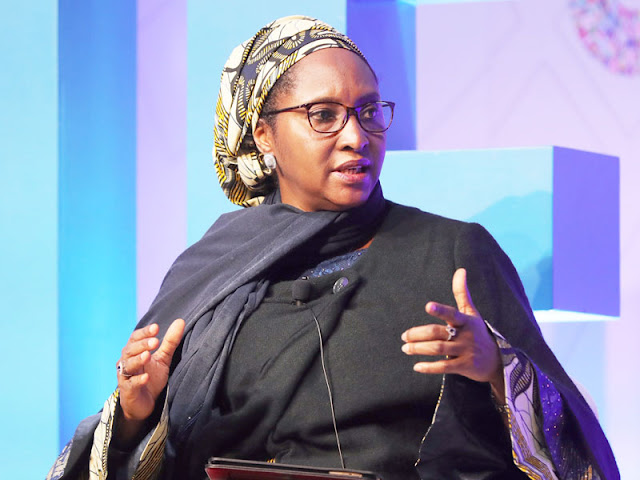
The budget deficit that is projected for 2022 is N5.62 trillion, up from N5.60 trillion in 2021
The Nigerian Government has submitted a proposal to borrow the sum of N5.62 trillion to finance deficits in the 2022 budget, and also slash capital expenditure in 2022 by N259.315 billion.
The Federal Government has proposed N13.91trillion as the budget for 2022.
The Comptroller General of Nigerian Customs Service, NCS, Col. Ahmadu Ali (retd), has also advised the Department of Petroleum Resources, DPR to issue licenses to petrol stations in neighbouring countries, to check the smuggling of petroleum products to those countries.
The minister for Finance, Budget and National Planning, Zainab Ahmad, while presenting the 2022—2024 Medium Term Expenditure Framework (MTEF), and Fiscal Strategy Paper(FSP), before the House Committee on Finance, stated that the reduction became necessary given economic volatility occasioned by unstable global oil market as well as effects of the covid-19 pandemic.
According to her, “on capital expenditure, the sum of N1,759,804,022,579, as opposed to the N2,019,119,204,546, will be available to Ministries Department and Agencies of government in 2022.”
On the exchange rate, the naira is being pegged at N410 to $1(US Dollar), just as that minister told legislators that the projection is likely to come down in favour of the naira in 2023.
Explaining the deficit, the minister said: “the budget deficit and the financing items for the expenditure. The budget deficit that is projected for 2022 is N5.62 trillion, up from N5.60 trillion in 2021.”
“The deficit is going to be financed by new foreign borrowing. And domestic borrowing, both domestic and foreign in the sum of N4.89 trillion, then privatisation proceeds of N90.73 billion and drawdowns from existing project titles of N635 billion.
“This amount represents 3.05 per cent of the estimated GDP, which is slightly above the 3 per cent threshold that is spent recommended in the Fiscal Responsibility Act.
On revenue projections, the minister in the document stated that based on the decision of the Federal Executive Council (FEC) the sum of N6.54 trillion is expected to be realised for the 2022 fiscal year, adding that it was projected to increase in 2023 to N9.15 trillion.
“The revenue that we expect is N6.54 trillion N2.62 trillion to accrue to the Federation Account and VAT respectively,” she said.
She disclosed further that net oil and gas revenue which will be available for the Federation Account for distribution will be N6.151 trillion in 2022.
The key macro-economic assumptions contained in the MTEF/FSP include a crude oil benchmark price of $57 per barrel for 2022, crude oil production of 1.88 million barrels per day, and a dollar exchange rate of N410.15 to one US dollar, an inflation rate of 13 percent in 2022, and a nominal GDP of 149.369 trillion.
“What is interesting is that the non-oil GDP continues to grow at 169.69 trillion compared to oil GDP of 14.68 trillion included in the nominal GDP. Nominal consumption is 130,49.36 billion.
On unemployment, the documents revealed that 82.9 million Nigerians are adjudged to be living in poverty.
According to the minister, the global economic growth is projected to moderate to 4.9 per cent in 2022, just as she warned that Nigeria continues to be exposed to risk aversion in the foreign exchange market and devaluation of the naira.
The MTEF/FSP are documents that describe the Federal Government’s socio-economic and developmental objectives and priorities for the reporting period of 2022 to 2024.
It also has the financial strategies to put in place and policies to achieve government economic priorities, including highlights of the key drivers of government’s revenue and the spending plans.
Also at the hearing, the CG Customs, advised that, “to check cross border smuggling of petroleum products and improve on government revenue, the government, must establish filling stations in neighbouring countries like Togo, Benin, Chad, Niger, Cameroon and other neighbouring countries”.










